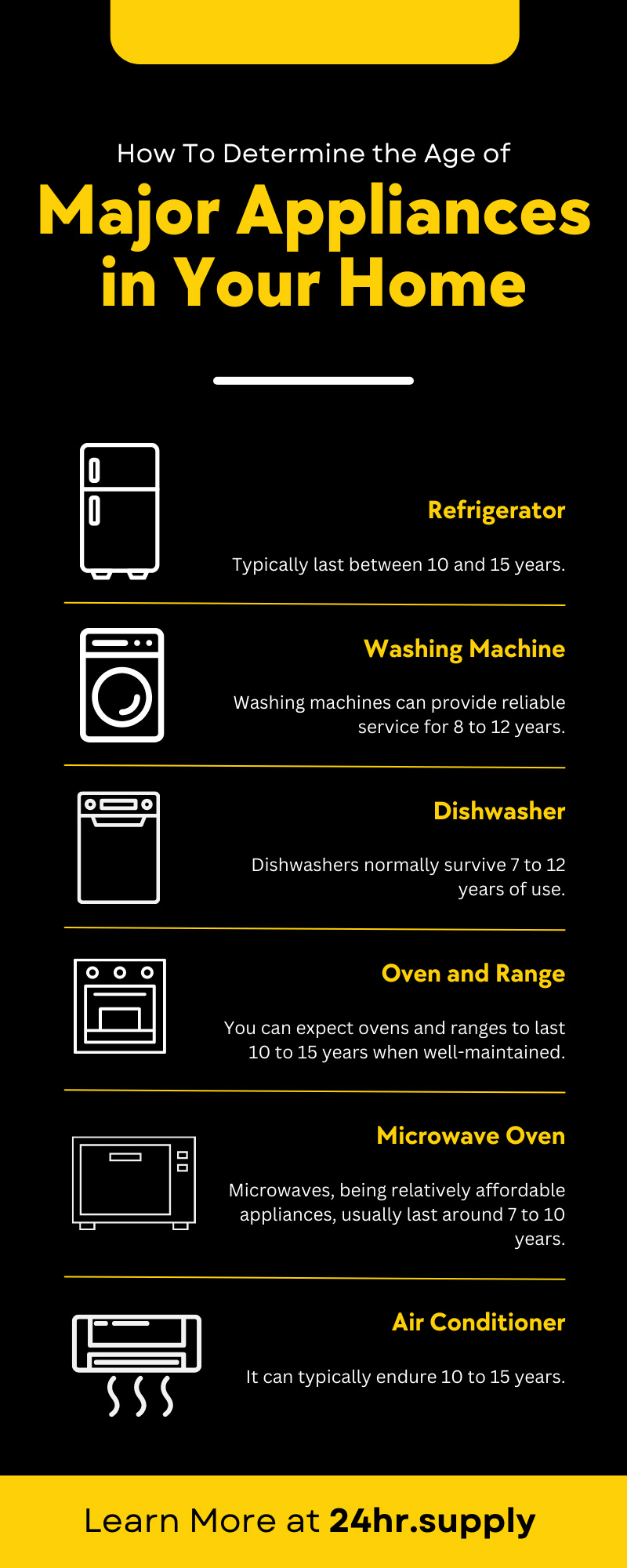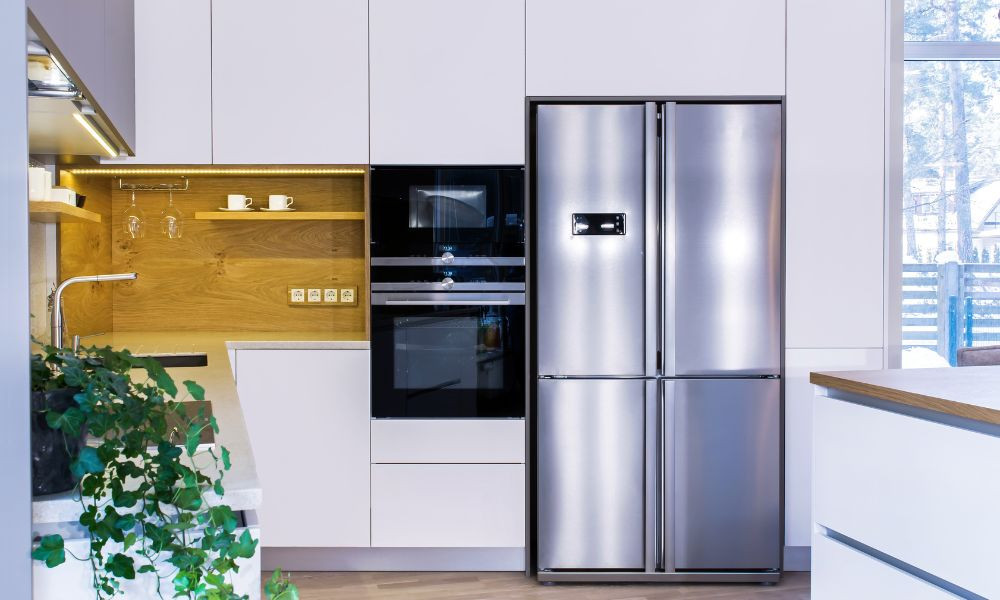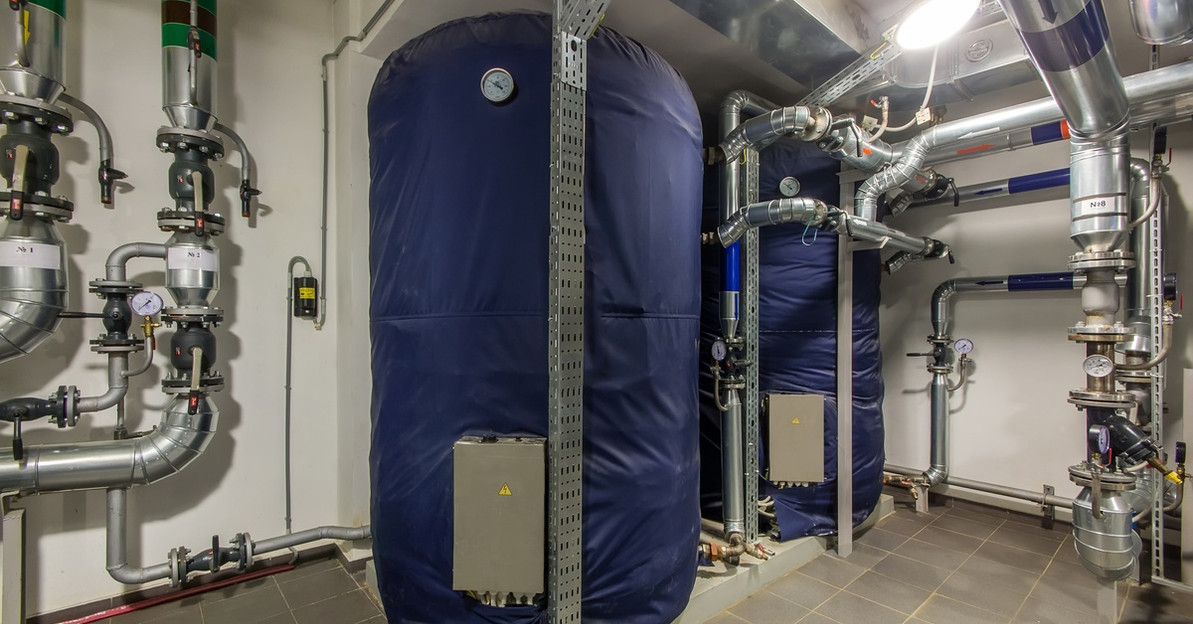How To Determine the Age of Major Appliances in Your Home
Knowing the age of major appliances in your home is essential for keeping up with proper maintenance, planning for replacements, and ensuring optimal functionality. While it might seem like a challenging task at first, there are several methods that can help you find the age of your appliances. Read on to learn how to determine the age of major appliances in your home, from refrigerators to air conditioners and more.
Reasons You Need To Know Your Appliances’ Ages
There are several benefits to knowing your appliances’ ages. These include:
Assessing Energy Efficiency
Determining the age of your major appliances allows you to gauge their energy efficiency. As appliances age, they tend to consume more electricity or gas, which can result in higher utility bills. By identifying the older and less energy-efficient appliances, you can plan for upgrades to newer models, which will save you money in the long run and contribute to a greener, more sustainable household.
Anticipating Maintenance and Repairs
Knowing the age of your appliances helps you anticipate necessary maintenance and repairs. As appliances reach certain milestones in their lifecycle, they become more prone to wear and tear that can potentially lead to breakdowns and costly repairs. With this knowledge, you can implement proactive maintenance schedules and stock up on repair supplies. If you need high-quality plumbing and heating supplies for your appliances, you can find them at 24hr Supply. We carry parts for most major appliances, new and old.
Ensuring Safety and Compliance
Older appliances may not meet the latest safety standards and regulations. If you know the age of your appliances, you can check if they comply with current safety requirements. This is especially crucial for gas-powered appliances, as outdated models might be more likely to leak or malfunction.
Planning for Upgrades and Replacements
If you know how old your appliances are, you can plan for future upgrades and replacements strategically. Rather than facing an unexpected breakdown and scrambling for a replacement, you can budget and prepare for appliance purchases well in advance.
Maximizing Warranty Coverage
Most major appliances come with warranties that cover repair costs for a specific duration. By knowing the age of your appliances, you can determine whether they’re still under warranty. This knowledge is useful to have because it allows you to take advantage of warranty benefits if any issues arise.
Enhancing Home Value
If you plan on selling your home in the near future, you should know how old your appliances are since they can have an impact on your property’s overall value. Prospective buyers often consider the condition and age of appliances when making purchasing decisions. Having updated and well-maintained appliances can significantly increase your home’s market appeal, potentially leading to a higher selling price.
Lifespans for Different Appliances
Different appliances have different lifespans. Five years may be considered old for a microwave, for example, but young for a refrigerator. It’s crucial to understand the average lifespan for each appliance so you can gauge how their age impacts their functionality.
Refrigerator
Refrigerators—the workhorses of the kitchen—typically last between 10 and 15 years, depending on usage, maintenance, and the quality of the unit.
Washing Machine
With regular maintenance, washing machines can provide reliable service for 8 to 12 years, but factors such as usage frequency and water hardness can influence their longevity.
Dishwasher
Dishwashers normally survive 7 to 12 years of use, but proper care and regular cleaning of a quality model can mean an extended lifespan.
Oven and Range
You can expect ovens and ranges to last 10 to 15 years when well-maintained. Electric models typically have longer lifespans than gas options.
Microwave Oven
Microwaves, being relatively affordable appliances, usually last around 7 to 10 years, but careful handling can help maximize their usability.
Air Conditioner
The lifespan of an air conditioner can vary based on usage and climate, but with proper upkeep, it can typically endure 10 to 15 years.
Water Heater
Water heaters have an approximate lifespan of 8 to 12 years, but routine maintenance and regular flushing can help prevent premature failure.
Clothes Dryer
Clothes dryers can last about 10 to 15 years, but it’s essential to clean lint traps regularly to avoid potential hazards and extend their use.
Garbage Disposal
Garbage disposals typically last between 8 to 15 years, as long as you don’t overuse or overload them.
Ways To Determine the Age of Major Appliances
Knowing how old your appliances are is important, but how do you determine the age of major appliances in your home? Here are a few methods you can use.
Manufacturer’s Label or Serial Number
The easiest way to determine an appliance’s age is to examine its manufacturer label or serial number. You can usually find this information on the back or side of the appliance. The serial number contains a code indicating the manufacturing date. However, deciphering this code can be a bit tricky since each manufacturer uses a different coding system. If you’re not sure how to decode your appliance’s label or serial number, consult the user’s manual or contact the manufacturer directly.
Online Database and Manufacturer Website
Don’t have your user’s manual on hand and don’t feel like sitting on the phone waiting for assistance? There’s one other way you can decode your appliance’s serial number—by checking online. You can often find appliance serial numbers and their corresponding production dates in online databases and on manufacturer websites. By inputting your appliance’s serial number into these resources, you can quickly obtain the necessary manufacturing information.
Appliance Manual and Documentation
Appliance manuals and documentation can offer insight into the manufacturing date. Check the original documentation that came with the appliance or visit the manufacturer’s website to find digital copies of the manual. The date of purchase could also be a good indicator of the appliance’s approximate age, especially if it was purchased shortly after its release.
The Manufacturer
When all else fails, reaching out to the manufacturer directly is a reliable way to determine the age of your appliance, as they have access to comprehensive records and can help you find the exact date of production. Many manufacturers have dedicated customer support teams that you can ask to provide this information.
Being aware of the age of your major household appliances is crucial for ensuring proper functionality and planning for replacements or repairs. Armed with this knowledge, you’ll be better equipped to maintain and optimize your household appliances for years to come.

Recent Posts
-
7 Signs That Your Water Heater Is Leaking
A water heater might not be the flashiest appliance in your home, but when it starts acting up, it c …Jun 27th 2025 -
The Impact of Booster Pumps on Water Quality
Imagine turning on your faucet, only to watch a weak stream of water struggle its way out. It’ …Jun 16th 2025 -
Step-by-Step Guide To Installing a Commercial Water Heater
Installing a commercial water heater is a big project, especially when it directly impacts the comfo …Jun 10th 2025





